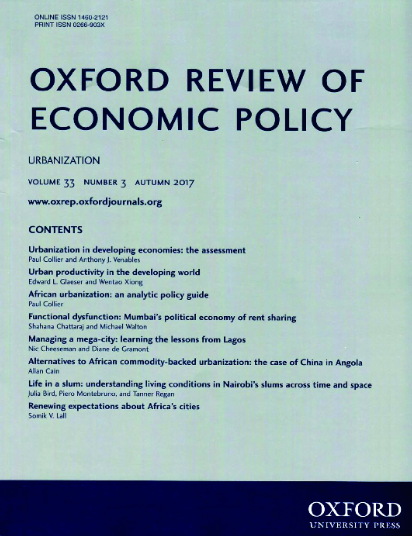数字颠覆:人工智能与国际贸易政策
IF 1.8
2区 经济学
Q2 ECONOMICS
引用次数: 2
摘要
随着各国政府和科技公司争相为数字时代制定国际规则和标准,全球经济的数字化正在迅速发展,并引发了新一轮贸易谈判。这篇文章探讨了贸易政策制定者对人工智能的反应方式,人工智能可以说是最具破坏性的新数字技术。在数字化的全球经济中,贸易规则对人工智能的创新、吸收和治理具有影响,但现有的贸易规则存在重大缺陷,需要更新,以帮助有效的人工智能治理。更新正在进行,但到目前为止,这些变化侧重于促进人工智能,并不成比例地反映了大型科技公司、人工智能的主要创新者和所有者的利益。新的数字贸易规则包括对源代码和算法的严格知识产权保护,以及实现数据跨境自由流动的坚定承诺。然而,在应对与人工智能相关的跨境风险和危害方面,在竞争政策等领域取得的进展要少得多;人工智能的道德、透明和负责任的使用;个人资料保护;以及防止在消费者和劳动力市场上利用算法。本文章由计算机程序翻译,如有差异,请以英文原文为准。
Digital disruption: artificial intelligence and international trade policy
Digitalization of the global economy is occurring apace and has spurred a new wave of trade negotiations, as governments and technology firms vie to establish international rules and standards for the digital era. This article examines the ways that trade policy-makers are responding to artificial intelligence (AI), arguably the most disruptive of the new digital technologies. In a digitalized global economy, trade rules have implications for AI innovation, uptake, and governance, yet existing trade rules have significant shortcomings and need updating in order to assist with effective AI governance. Updating is happening but, so far, the changes focus on promoting AI and disproportionately reflect the interests of large technology firms, the major innovators and owners of AI. New digital trade rules include stringent intellectual property protections for source code and algorithms, and strong commitments to enable the free flow of data across borders. However, much less progress has been made in addressing cross-border risks and harms associated with AI, in areas such as competition policy; ethical, transparent, and accountable use of AI; personal data protection; and protections against the exploitative use of algorithms in consumer and labour markets.
求助全文
通过发布文献求助,成功后即可免费获取论文全文。
去求助
来源期刊

Oxford Review of Economic Policy
ECONOMICS-
CiteScore
12.50
自引率
1.50%
发文量
41
期刊介绍:
The Oxford Review of Economic Policy is a refereed journal which is published quarterly. Each issue concentrates on a current theme in economic policy, with a balance between macro- and microeconomics, and comprises an assessment and a number of articles. It gives a valuable appraisal of economic policies worldwide. While the analysis is challenging and at the forefront of current thinking, articles are presented in non-technical language to make them readily accessible to all readers. The Oxford Review is aimed at a wide audience including government, business and policy-makers, as well as academics and students. It is required reading for those who need to know where research is leading.
 求助内容:
求助内容: 应助结果提醒方式:
应助结果提醒方式:


